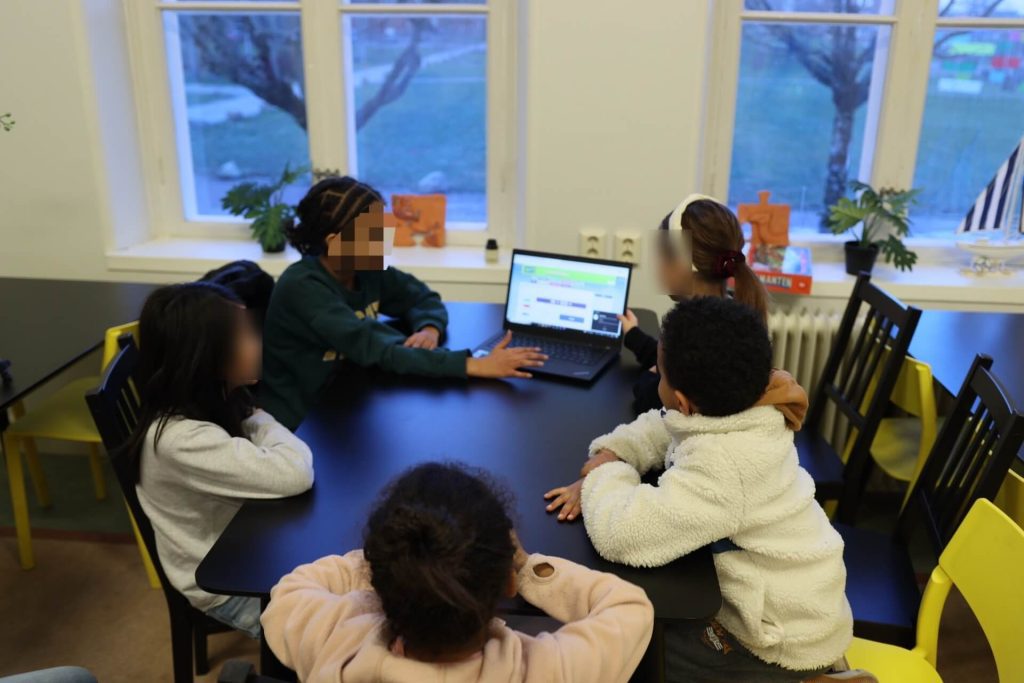This focused on practicing Interactive Groups (IGs) and Dialogic Literary Gatherings (DLGs) by using different fairy tales and mathematics. These initiatives involved 15 to 25 children who actively participated in collaborative learning, focusing on mathematics and dialogic literary analysis in multiple languages.
Vänersborg Reception and Identification Centre
Vänersborg, Restad-Gård, Sweden
Impact and successes
Living in asylum accommodation camps is challenging in many ways, with people experiencing uncertainty, unsustainability, and economic hardship. Improving children’s wellbeing and academic motivation is therefore needed to support them psychologically and emotionally. The approach taken over the course of pilot implementation had a significant impact on children’s psychosocial development. It was observed that if children do not receive psychosocial support, educational activities may not yield optimal results.
Traditional classes within Swedish schools do not have a combination of MHPSS (Mental Health and Psychosocial Support) and educational actions, which can contribute to children with migrant backgrounds experiencing a lack of academic motivation. Therefore, over the course of the pilot implementation the importance of MHPSS action as a necessity approach to improve academic success have been advocated.
Lessons, learning and recommendations
MHPSS actions are very important to help children achieve better academic results. During the pilot implementation we observed that most children who fled from war and conflict experienced trauma and distress. They frequently and subsequently had difficulties focusing and a tendency of towards hyperactive and more aggressive behaviours, often being engaged in conflict and bullying with each other. In order for the Successful Educational Actions (SEAs) practices to be conducted with them, it was very important to play in groups like Team Up activities or group activities like ‘Right to Play’, by means of an MHPSS approach first before any educational activities, to prepare the children emotionally and psychologically.
Integrating MHPSS and SEA practices plays a vital role in promoting children’s wellbeing, sense of belonging and academic achievement. A combination of SEAs and MHPSS as a novel idea which has proven to be effective and successful can be a strong argument for advancing the sustainability of Refuge-ed project actions at the local and national level, in order to enhance the education system to better work for all and contribute towards dynamic integration and social inclusion.